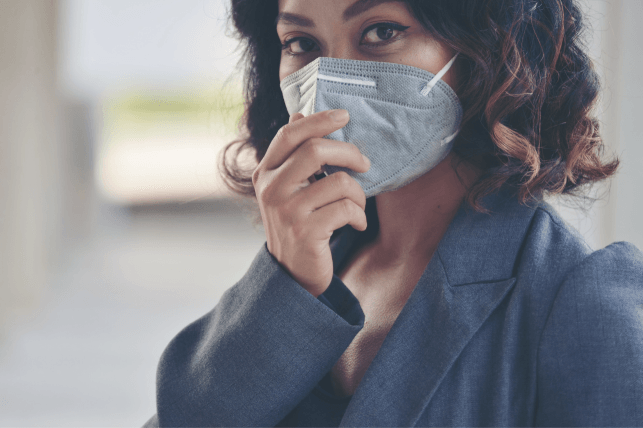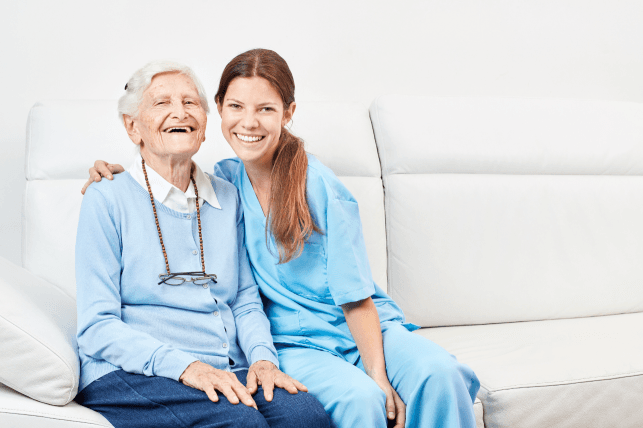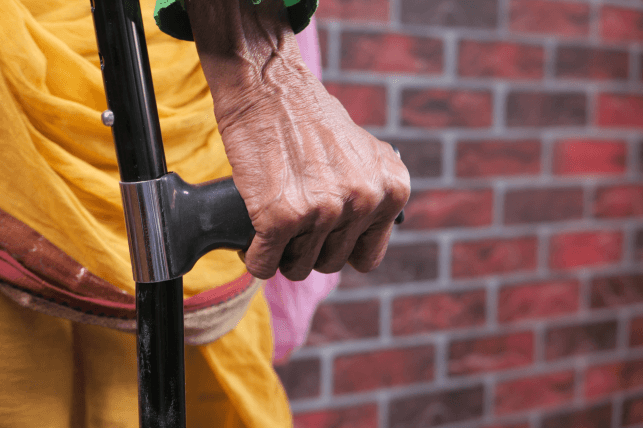
Compassion and Kindness Are Needed to Support Those Affected by COVID-19
Dee Bustos
Senior Caregiving
Mar 15, 2021
10 min read
The COVID-19 pandemic spurred a disturbing increase in negative behaviors, including hostility, shunning, and blaming others for testing positive for the virus. In the past, similar scrutiny and judgment were placed on those with HIV, STIs, or even obesity.
There are still many unknown factors surrounding COVID-19. Anyone, even wearing masks and social distancing can potentially be infected with COVID-19 because it is highly contagious.
Who Suffers from Being Shunned, Shamed, or Stigmatized?
Various groups have been targeted including:
-Anyone who had and survived, or has tested positive for COVID-19 -Travelers, especially those returning from a travel -Asian Americans -Those released from quarantine -Healthcare Workers -People not wearing masks -People not social distancing or following COVID-19 protocols
When a virus is so highly contagious, it may be a matter of when not if, someone gets COVID-19. In the stress and uncertainty of the times, it is important to remember that we as a society are stronger when we unite and support each other.
This is not a new concept. Generations of Americans have helped one another when in need. This pandemic is no different. Instead of blame and guilt, it is important to work together to find solutions.
Our current era of worldwide communication and advanced technology enables us to accomplish amazing feats. It also allows misinformation to spread instantly.
Where there is misinformation, distrust and suspicion often follow. Fear that others who test positive may spread the virus to us may trigger avoidance.
Blame and finger-pointing only serve to divide us. We must do better than this.
Every misstep is an opportunity to examine how we can do better. What can we learn from our errors? How can we treat others with compassion? One question to ask yourself is, “How would I want to be treated if I have COVID-19?”
How Are Individuals and Groups Targeted for COVID-19 Shaming?
There are reports that COVID-19 survivors are fearful to admit they had the virus. This is because some friends, colleagues, and even family members that find out avoid the victim or completely stop communicating. Parents of children don’t want their own children put at risk.
At the same time a COVID-19 patient wants support and comfort, fear may lead family members, co-workers, colleagues, and friends to avoid the patient altogether. COVID-19 survivors are shunned and excluded from normal social situations.
Blaming is also seen with the current pandemic. Asian-Americans in particular have faced hostility and racism because of theories of where COVID-19 originated. Workers may be denied employment. Students may be excluded from the rest of the class. Isolated and scared, they frequently develop anxiety and depression.
Shaming for not wearing masks or properly social distancing is increasingly common. Anger that the person is careless or not taking proper precautions can lead to hostility. Testing positive for COVID-19 and then being shamed by others for testing positive is traumatic. Feelings of fear, uncertainty, embarrassment, and even depression are normal.
Insults and other verbal abuse, emotional abuse, and even physical abuse are taking place against Asian-Americans, frontline workers, first responders, and COVID-19 victims.
Combat fear by knowing the facts:
-It is possible to be an asymptomatic carrier of the strain of virus (SARS-CoV-2) that causes COVID-19. COVID-19 can be spread before you even realize you have symptoms of it. -Respiratory droplets, or particles, are responsible for spreading COVID-19 from one person to another. This can be done by: coughing, sneezing, breathing, talking
-The vaccines should greatly reduce transmission rates, but masks, hand-washing, and social distancing are still necessary in most cases.
Shaming COVID-19 Survivors Worsens the Pandemic
There are reports that people are afraid to admit to their families, friends, and colleagues that they tested positive for Covid. Hiding test results or feeling ashamed to admit they have COVID-19 because the reactions of others often have negative consequences. The fear of being judged by others reduces the possibility for proper self-care and the ability of healthcare professionals to conduct testing, treatment, and medical care for others that may have been exposed.
Creating an environment where those impacted are treated differently hampers us as a community. When members of our community are afraid to speak out and seek support, it is a sign we are failing.
How to Show Compassion and Kindness during the Pandemic
The fear of being shamed or blamed for becoming infected by a highly contagious virus discourages those impacted from being fully transparent. This prevents our community from effectively responding to the pandemic.
We all need to collectively examine our words, responses, actions, and behavior. Fear cannot replace care, support, kindness, and compassion. Here are some ways you can show compassion and kindness:
Show respect and admiration for healthcare workers, law enforcement, and others working essential jobs. They help all of us stay safe on a daily basis. Thank them for their efforts.
If you know someone who survived COVID-19, be prepared to listen to them in a non-judgmental way. Sometimes just talking through the experience can reduce the feelings of trauma. Educate yourself with facts about COVID-19. Eliminated falsehoods will reduce feelings of anxiety and fear. We all need to work together to successfully get past the pandemic. If our community unites as one, we all benefit.
Let’s collectively make every effort to be there for one another. The Bay area should be an example of kindness and compassion toward COVID-19. We must all use our ability to support one another, not point fingers, spread blame, or shame anyone during the COVID-19 pandemic.
Finding the Perfect Caregiver and Client Match

Why Aching Knees Are Worse Than A Broken Arm




